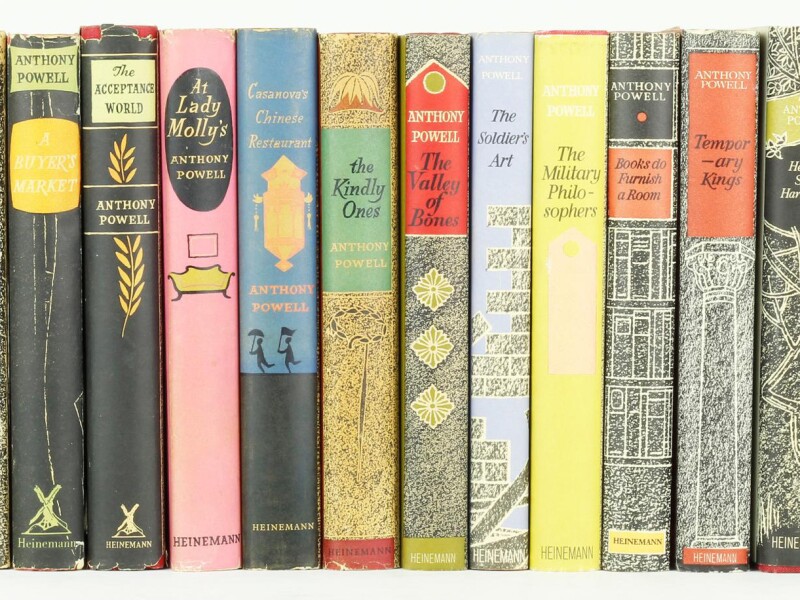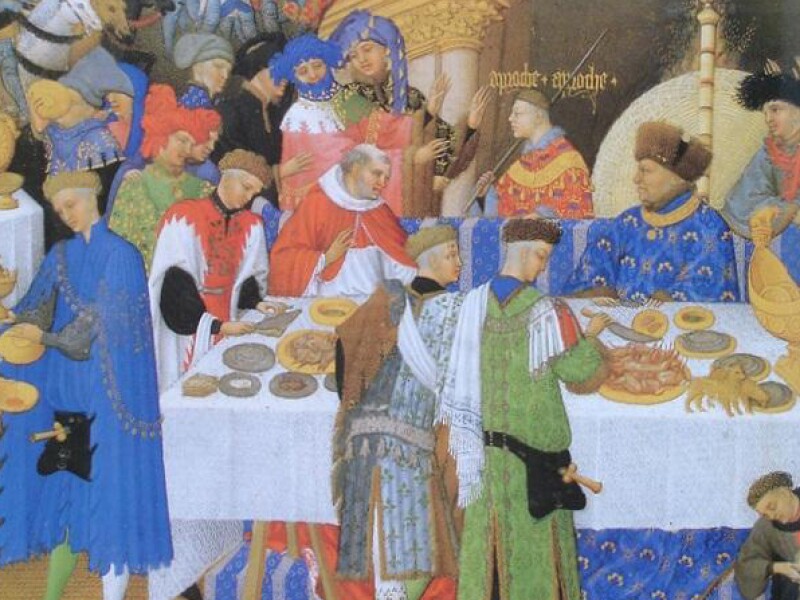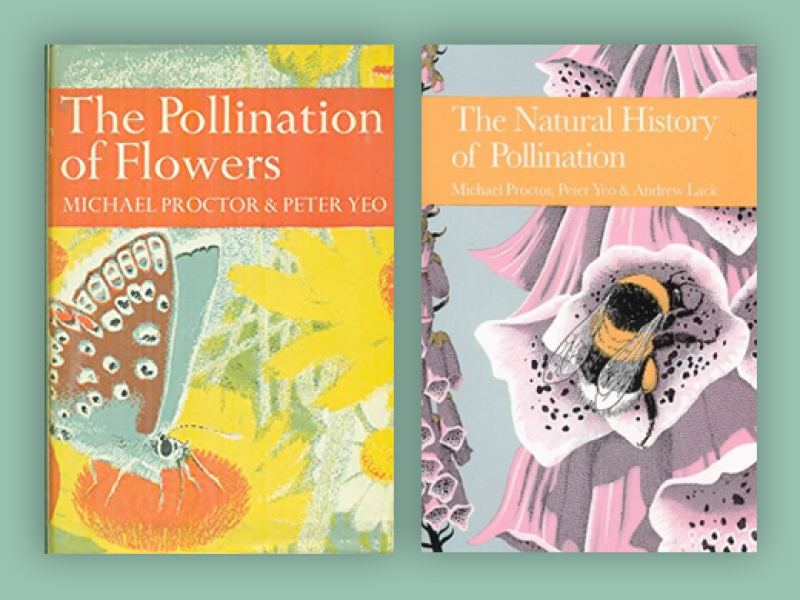These businesses owned and operated by women are located in the United States, Canada, the UK, Sweden and Germany. Discover how these rare booksellers launched their careers and their advice to young women wishing to enter the profession today.
Bison Books - Winnipeg, Manitoba, Canada
Aimee Peake owns Bison Books in Canada’s notoriously cold city of Winnipeg. This warm-hearted bookstore has a modern front with an antiquarian interior. Their specialties include Indigenous studies, art, and literature, especially Canadian literature. Bison Books began in 2000 under the ownership of Michael Park. Aimee, who was trained and mentored by Michael, took over the business in 2010. She is the vice president of the ABAC (Antiquarian Booksellers Association of Canada).
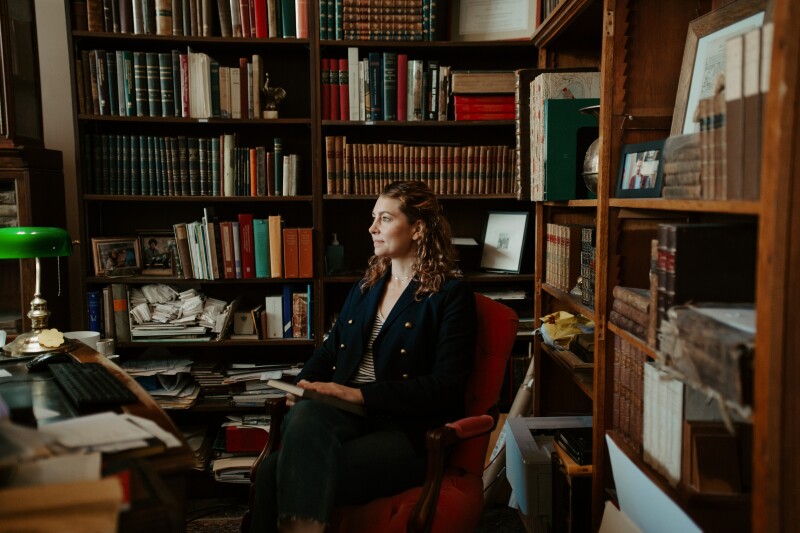
How did you start in rare bookselling?
“Serendipity. In the mid-1990s, I was looking for a job to support my university tuition. I walked by Greenfield Books (owned by Michael Park) and saw a 'help wanted' sign in the window. I took in my resume and got an interview. I worked at Greenfield for a handful of years, until 2000 when Michael opened Bison Books as a second location and moved me there to manage the new shop.
"He’d taught me the importance of buying, and impressed on me strict standards and ethics. When I moved to Bison Books, he left me on my own to figure things out for myself. I taught myself to buy and price, catalog and pack, hire and fire, and do the bookkeeping. Years later, I realised I didn’t want to work for someone else forever. I approached Michael and he agreed to sell me the business.”
What's your advice to young women looking to become rare booksellers?
“I would advise mentorship: find someone you trust and admire and learn from their example. Know your strengths, lean on them, and work to expand their scope. Integrity is an invaluable foundation. Get to know your colleagues. Always buy good books. Question your assumptions, and be adaptable to changes of culture and circumstance. Don’t forget that underlaying the fun and romance, is cold, hard business.”
Karen Jakobsen - Sturminster Newton, Dorset, UK
Karen Jakobsen offers art and design books, as well as English literature and poetry. Her experience includes working for Christie’s and 10 years with a London art gallery. She switched gears with a move to rural Dorset. In 2021, she opened a small seasonal bookshop at a garden nursery at Symondsbury. The shop is open from May to September.

How did you get started in rare bookselling?
“My father was an avid collector of books on landscape design and plants. When I was young, my brother and I would be taken around bookshops in Brighton. Local auctions too. I never foresaw that bookselling would be part of my future. After doing a History of Art degree and working with auction houses and art dealers in London for many years, it was after having my daughter and moving to the country that I decided to sell art books.
"I had picked up knowledge along the way but I pretty much taught myself about buying and selling books by going to auction houses, buying up general lots of books and finding out which ones sold and which ones didn't, and how important condition and rarity were. I then narrowed down my subject matter to art and design, but I still consider books from other genres when buying collections privately, particularly literature.”
What's your advice to young women looking to become rare booksellers?
“There is definitely room for more women in the antiquarian book trade - like so many other industries it has been male-dominated for too long. Don't let the male cliques and cabals of the bookselling world put you off. It is changing fast and with enough women in the trade there will be gender parity before too long, and with women rising higher in industry than ever before, there are more serious women collectors out there. Find your niche.”
Stella & Rose's Books – Tintern, Monmouthshire, UK
Sisters Sonia Bryant and Maria Goddard run Stella & Rose's Books in the Wye Valley. Based in a small village famous for a William Wordsworth poem, they’ve sold used and rare books to customers around the world since the 1990s. They specialise in children’s books, illustrated books, topography, transport, history, and other subjects. Both Sonia and Maria are deaf - it has not prevented them from building a vibrant business.
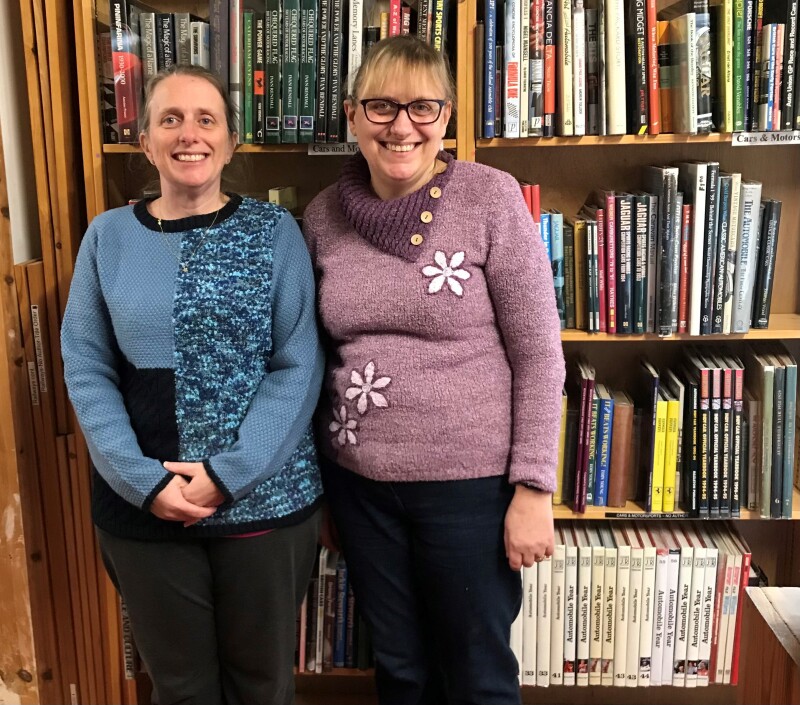
How did you start in rare bookselling?
Sonia explains: “The business started as a hobby for our parents in 1991. It was known as Stella Books at this point. Maria had just left college and was not sure what to do. She started to work full-time cataloging a collection of books that were purchased by Cliff and Chris (our parents) and sending out small lists to mail order customers.
"In 1992, a shop became available in Tintern where the family lived so we moved the business into that. In 1994, another shop became available in Hay-on-Wye. That shop was known as Rose’s Books and we kept the name. In 1998, I left my job as a medical laboratory assistant and joined. The business slowly merged into Stella & Rose’s Books. In 2018, we closed the shop in Hay-on-Wye, and now Maria and I run the shop in Tintern together. Most of the business is online.
“With our deafness, this is where the Internet and email come in. We have five part-time staff and if we have to speak on the telephone, we ask our colleagues to make a call for us. Most of the time we get around it through email and online chat.”
What's your advice to young women looking to become rare booksellers?
“You may never be rich. However, it is a rewarding job and fascinating as new items are always coming through and you get to be the one to see and handle them before anyone else. It is mainly a male-dominated world but there are plenty of female booksellers out there for support.”
Search Stella and Rose's Books
Priscilla Juvelis Rare Books - Kennebunkport, Maine, USA
Priscilla Juvelis specialises 20th century book arts, including fine printings, fine bindings, calligraphy, and artist’s books. Having entered bookselling in 1979, she admits retirement is close. Priscilla served as president of the ABAA (Antiquarian Booksellers Association of America) from 1998 to 2000.
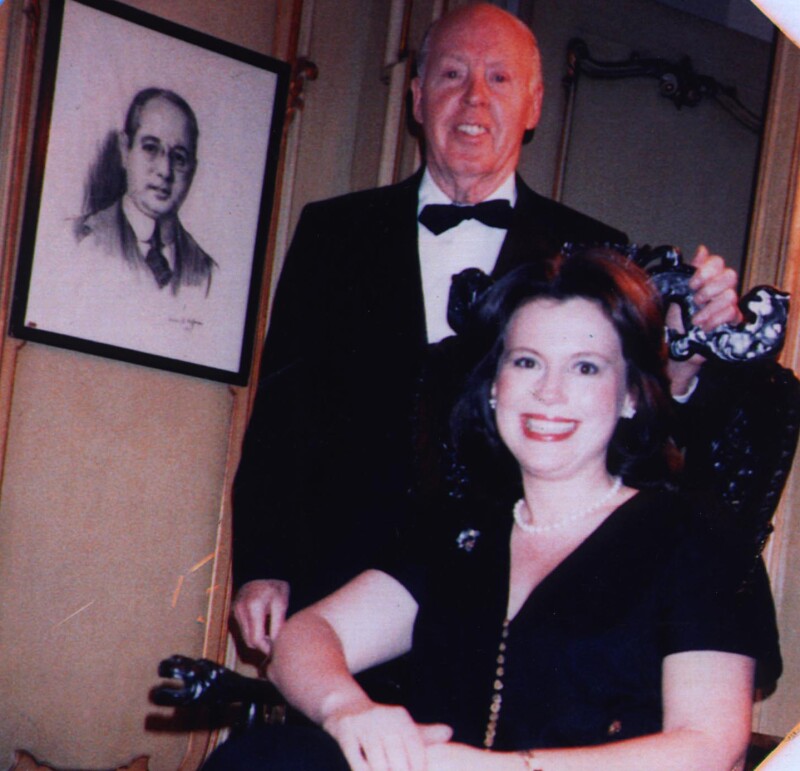
How did you start in rare bookselling?
“I started in 1979 as an apprentice to the late John F. Fleming, perhaps the most important bookseller in the United States in the 1950s and 1960s. By 1982, I was his partner until his death in 1987. Previous to 1979, I worked in publishing – first for Harcourt Brace Jovanovich and then buying rights for a book club.
“I became John Fleming’s partner when I purchased a collection of livre de peintres (artist’s books) in designer bindings. When I had the collection in my hands - after borrowing the money to buy it and bring it to the US - I offered John the chance to buy into the collection with me… with the stipulation that any customers we gained as a result of this collection we would also share 50/50. He agreed and I began an intense learning period. John gave me the crash course in bookselling, and I am still grateful for his efforts.”
What's your advice to young women looking to become rare booksellers?
“In addition to the usual ‘buy what you love’, I would add it really helps to immerse oneself in the world of rare books - clubs and lectures, bookfairs and auctions, academics and other customers - everything and everyone. I found I made more than my fair share of friends and mentors, and learned so much from my colleagues and customers.”
Unterwegs Antiquariat M.-L. Surek-Becker – Berlin, Germany
Marie-Luise Surek-Becker has more than 25 years online bookselling experience. Today, her bookshop, Unterwegs Antiquariat, offers books about architecture, photography, Berlin and Brandenburg, and travel, attracting business from architects, designers, historians and collectors.
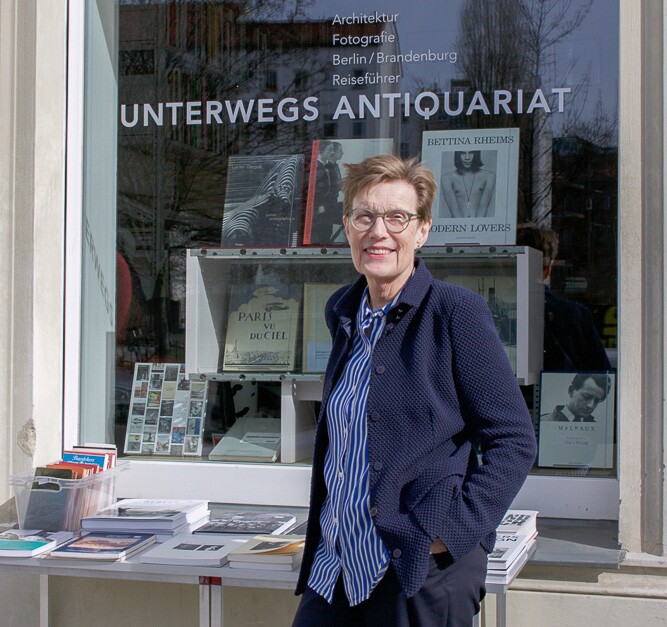
How did you start in rare bookselling?
“I came to Berlin to apprentice as a bookseller after university. After about five years, I jumped into being self-employed, first as a mail order bookseller with a part-time job, and then later full-time with my bricks and mortar bookshop. My specialties resulted from my interests and my shop’s location in the center of Berlin where there is a dynamic group of customers.”
What's your advice to young women looking to become rare booksellers?
“Running an antiquarian bookshop is not always easy, but it can be very fulfilling. You need a good knowledge of books and the history of books, sufficient financial cushion, knowledge of marketing and IT, and then much more to be successful. If you love working with a diverse group of collectors and colleagues, then I highly recommend running your own business.”
Honey & Wax Booksellers - Brooklyn, New York, USA
Heather O’Donnell owns Honey & Wax Booksellers. In 2017, she and Rebecca Romney (then a partner in the business) established the annual Honey & Wax Book Collecting Prize for young women book collectors. Honey & Wax specialises in literary classics and curiosities, with an emphasis on unique copies.
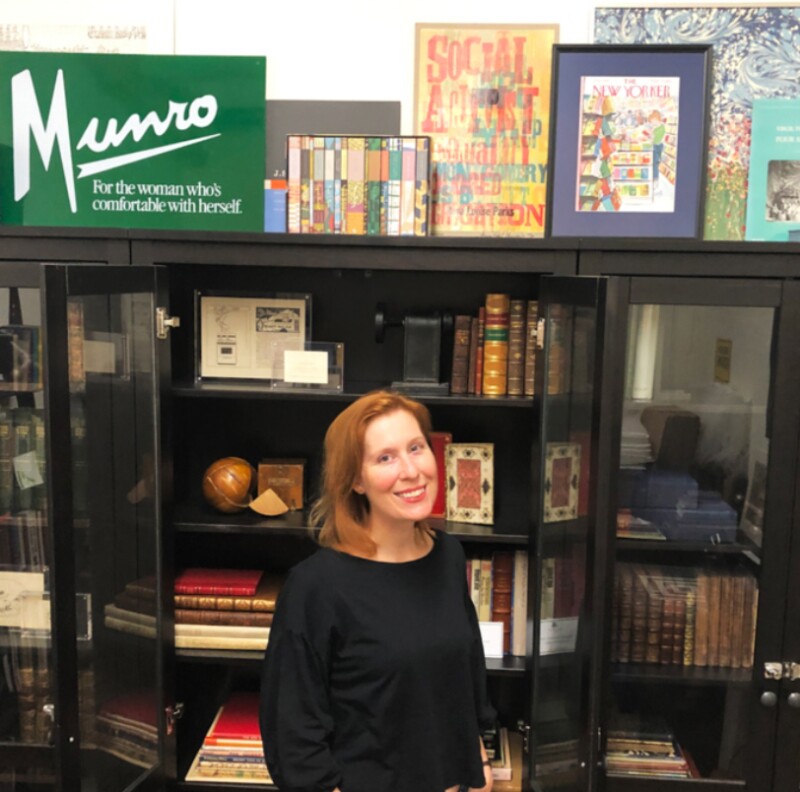
How did you start in rare bookselling?
"In college, I took a summer job at the Strand in New York, a whirlwind introduction. As a graduate student at Yale, I worked as a curatorial assistant at the Beinecke Rare Book and Manuscript Library, which taught me how rare books are bought, as well as sold.
"Most importantly, I worked for seven years as a bookseller in the Madison Avenue gallery of Bauman Rare Books, handling everything from incunabula to modern firsts, which gave me a solid foundation. In 2011, I founded Honey & Wax, and have enjoyed life as an independent bookseller ever since. While my primary interest is in literature, my stock spans the arts and sciences. I'm particularly drawn to surprising crossover moments in print history: books that represent a mix of disciplines, genres, and audiences."
What's your advice to young women looking to become rare booksellers?
"To make a living as a seller, you need skills as a buyer. Study the existing market for the kind of books you want to sell, and dive into that material. There's no substitute for handling books. Visit shops, fairs, auctions, sales, private collections, and libraries. Apprentice with an established bookseller if you can, but if that's not possible, seek out dealers who specialise in the material that interests you. Subscribe to their mailing lists, read their catalogues, and familiarise yourself with the references they cite. Visit them and introduce yourself. Bookselling is a marathon, rather than a sprint, so focus on building deep expertise and lasting relationships.
"To learn more, attend the annual Antiquarian Book Seminar (CABS-Minnesota) in the US or the York Antiquarian Book Seminar in the UK. To learn more about book history, consider courses offered by Rare Book School (at University of Virginia). If you're an early-career bookseller, apply to the Mentorship Program run by the Antiquarian Booksellers' Association of America, and be matched with an experienced seller as an advisor. The Bibliophile and ExLibris mailing lists often post jobs, and the Women in Rare Books and Manuscripts group on Facebook is a resource as well."
Charlotte Du Rietz Rare Books - Stockholm, Sweden
Charlotte Du Rietz opened her firm in 1995 and offers books about voyages, travel, exploration and linguistics, with an emphasis on Asia and Africa. She also offers illustrated books on fashion, design and textiles.
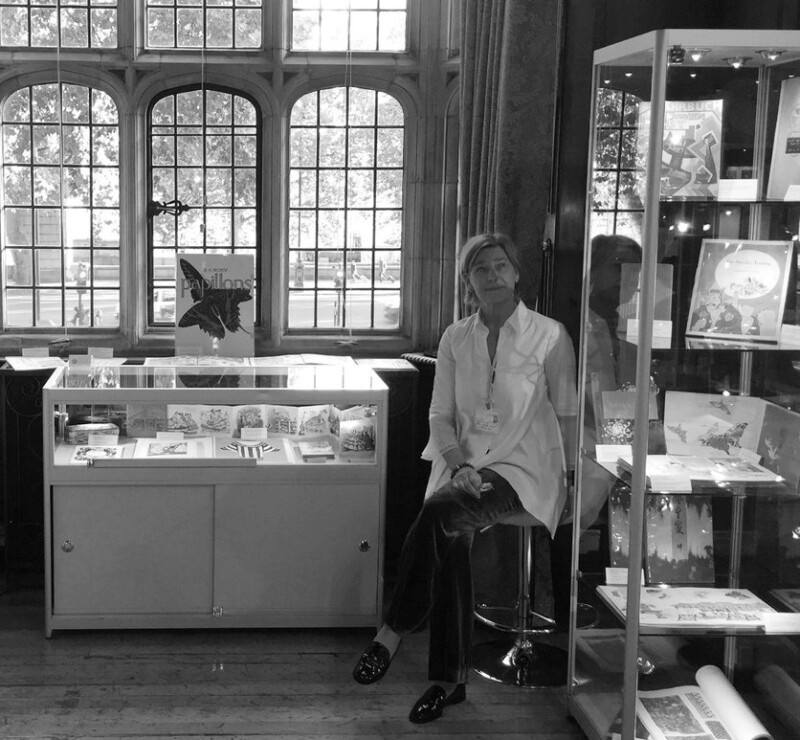
How did you start in the rare bookselling business?
“Through my late father-in-law, Richard Du Rietz, of Thulins Antikvariat, Sweden. I joined Richard at Thulins in the 1980s and grew a passion for antiquarian books. After a few years, I started my own company in 1995, initially based in London. In 2002, the company moved to Stockholm.
“After living in Japan for many years during the 1990s, my interest in travel and culture in Asia grew strong, and later also Africa. This interest is reflected in my work, with an emphasis on books on travel, exploration and language. I have always had a personal interest in both art and fashion, which later led to a greater focus on books in these areas as well.”
What's your advice to young women looking to become rare booksellers?
“Start by working at an established antiquarian business. This will give you an insight and contacts as well as experience in dealing with books in many areas. In order to develop further and deeper, I found it beneficial to start concentrating on subjects close to my own interests.
"Also, by limiting the scope of interest, you will find it more manageable to find books and to do further research. Finally, don’t be shy. There is so much knowledge in the trade that can seem insurmountable, but don’t give up. Just be brave and move forward. The keys to success as a bookseller are passion and knowledge.”
Imperial Fine Books - New York, USA
Bibi Mohamed founded Imperial Fine Books in 1989 and offers leather-bound books, sets, fine bindings, Cosway bindings, jeweled bindings, children's books, and rare books from a location on prestigious Madison Avenue.
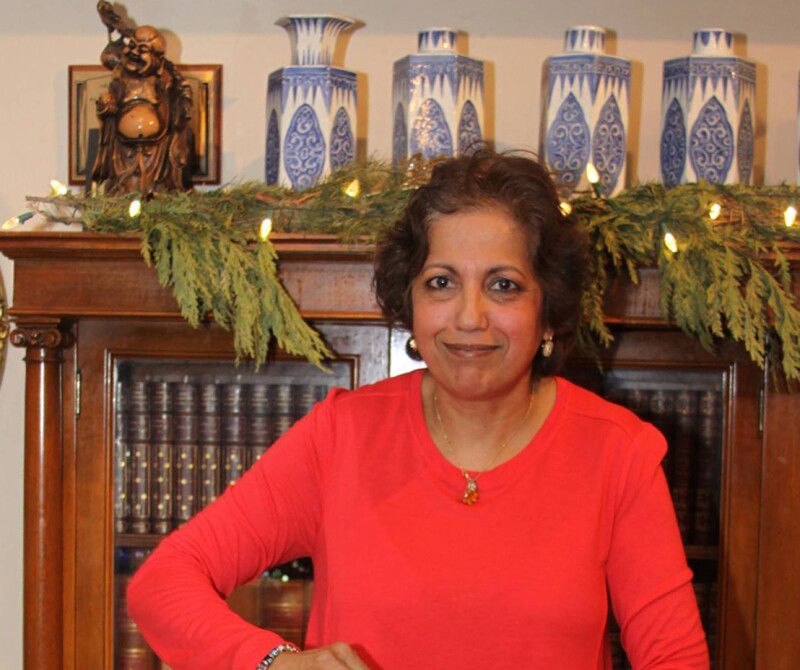
How did you start in the rare bookselling business?
“In 1972, I came to America with my parents and other siblings. It was one of the most exciting days of my life. My parents are Guyanese, we were born in British Guyana. After graduation, I started working for the most famous book dealer in the world at that time, JN Bartfield.
"It was an education and I worked for them for 13 years. At Bartfield, I was the secretary and got into sales in my last two years. However, it was a family business and there was no way to move up. I wanted a change. I started to go to house sales, looking for books – my business started in my parent’s basement. I worked from scratch to where I am today, and I’m proud of that.”
What's your advice to young women looking to become rare booksellers?
“Like I tell my daughters, if you have a dream, work hard towards it and you will be successful but it has to be something you love to do. I feel I have been successful because I love doing what I am doing, I love buying and selling rare books, but also meeting people and getting to know them.”
Any Amount of Books - London, UK
Gillian McMullan became the owner of Any Amount of Books in 2019. She had previously been the shop’s manager since 1998. Located on Charing Cross Road, Any Amount of Books is a London landmark – a bookshop has existed at this location since the 1920s. It offers general stock including rare books, first editions, modern literature, art, poetry, history and more.
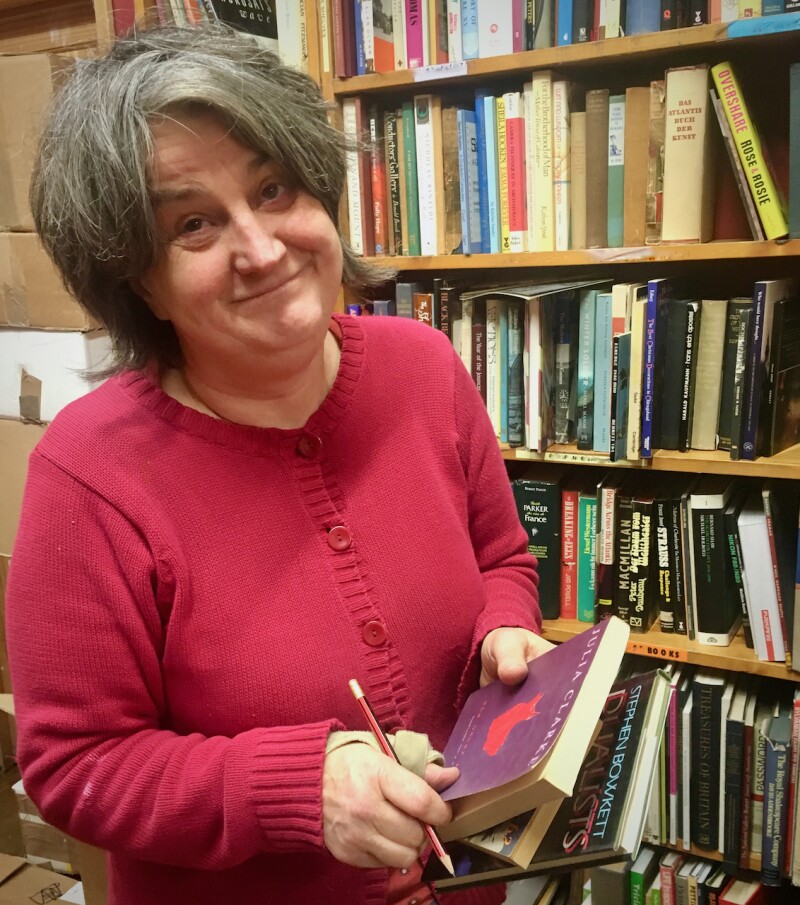
How did you start in the rare bookselling business?
“At Books Etc, a large new bookshop. I was advised to get a job in new bookselling in order to move into secondhand books by a man working in a Cecil Court bookshop. I never saw him again.
“My father created my interest in secondhand books. I liked secondhand shops just as I liked the local mobile library - who knew what would be there from week to week? I moved into secondhand bookselling at Quinto on London's Marylebone High Street, and started learning. I learned the difference between what I liked and what customers wanted, and what could be wrong and what could be right with a physical book.
“In the early 1990s, I moved to Paris with a boy I met and I worked at Shakespeare and Company for a few months. This taught me not to worry too much about not getting on with everybody, but I was introduced to a legendary seller called Martin Stone and he gave Nigel Burwood my name and I started working for Nigel at Any Amount of Books. I carried on learning, became manager, and when Nigel decided to become an online-only bookseller, I bought the bookshop. In between I married the Paris boyfriend and have made him work with me at the bookshop. Transition from manager to owner? I’m still learning.”
What's your advice to young women looking to become rare booksellers?
“Spend time in different sorts of bookshops. Avoid intensity but talk to staff and owners, don’t be put off by rudeness or lack of interest, find someone in another bookshop who isn’t rude. You could start in a new bookshop and/or do one of the available courses if possible. Move around and get different experience.
"Don’t be put off by dogsbody jobs, they can sometimes teach you the most but remember not to do them for 20 years. You will make mistakes; how else can you learn. Remember to keep on going. You might make a big one, like buying a bookshop in central London just before a global pandemic. Find quiet satisfaction in (most) of what you do.”
